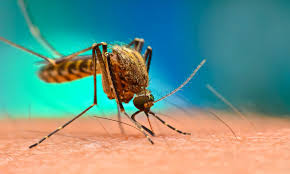The Covid-19 pandemic continues to disrupt malaria treatment programmes across the globe, the World Health Organisation (WHO) said yesterday.
Since the outbreak of Covid-19 in 2019, many countries shifted their attention from other diseases to the pandemic.
Speaking during the mRNA Malaria Vaccine event yesterday, WHO director-general, Dr Tedros Adhanom Ghebreyesus, said Covid-19 was negatively impacting governments’ efforts to contain Malaria.
“A WHO survey of 105 countries last year showed that 46% of them reported disruptions in malaria diagnosis and treatment,” said Ghebreyesus.
“The full impact of the pandemic on malaria may not be known for some time. But it is clear we have a lot of work to do to realise our vision of a malaria-free world. For starters, we must make much better use of the tools we have today to prevent, detect and treat malaria.
Ghebreyesus said WHO’s Strategic Advisory Group on malaria eradication has been clear on the need for new tools to realize the vision of a malaria-free world, including new vaccines.
“For several decades, many major vaccine developers have gradually abandoned their attempts to develop malaria vaccines,” he decried.
“But six years ago, the world’s first malaria vaccine was approved, and two years ago, WHO and our partners began a pilot programme to roll it out in Ghana, Kenya and Malawi.
More than 700 thousand children have now received the vaccine, and the initial results are very promising.”
The WHO chief however said “incredible” progress has been registered in the fight against malaria
“Since 2000, malaria deaths have fallen by more than half, and we have succeeded in eliminating malaria from many parts of the world,” noted Ghebreyesus.
“WHO has now certified 40 countries as malaria-free; most recently China, which reported 30 million cases a year in the 1940s. But globally, progress has stalled at an unacceptably high level, with more than 200 million cases and 400 thousand deaths every year. Most are children and pregnant women in Africa. And the COVID-19 pandemic has not helped.”

